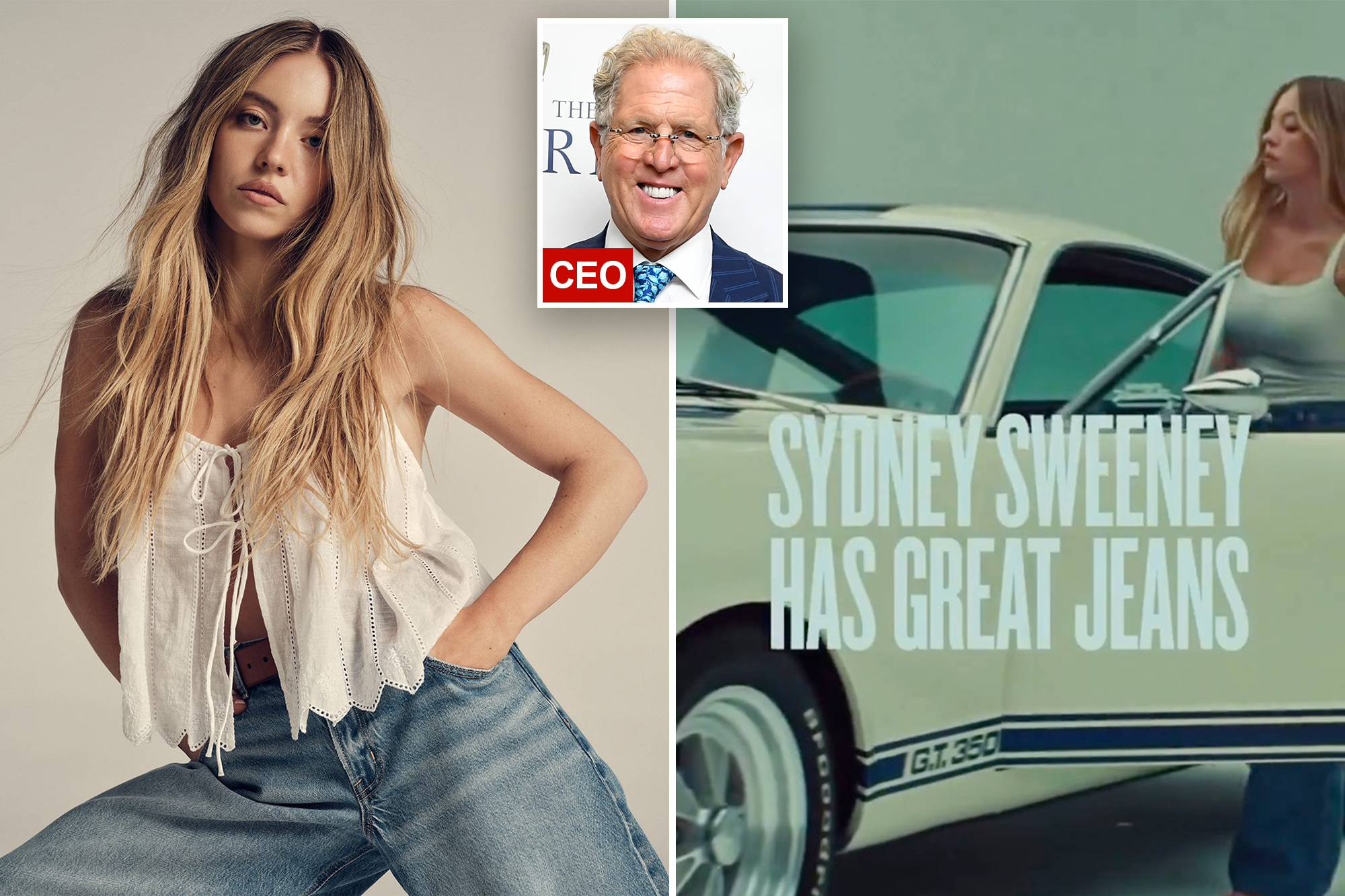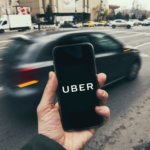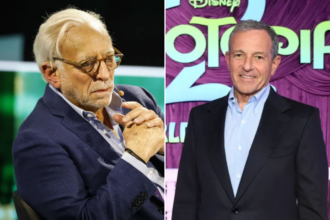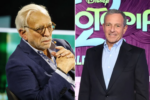The chief executive of American Eagle Outfitters resisted pressure on social media to pull its provocative ad campaign featuring Sydney Sweeney — telling his charges to remain calm in the face of accusations that the brand was promoting racist and sexist tropes, according to a report.
In the weeks that followed, the campaign proved to be a hit — bringing in almost a million new customers to American Eagle between July and September, according to the Wall Street Journal.
Demand spiked for featured items: the Sweeney Cinched Waist denim jacket sold out in a day, and the Sydney Jean sold out in a week.
The company’s stock surged and sales of its clothing rose.
“You can’t run from fear,” the teen retailer’s CEO Jay Schottenstein told the Wall Street Journal. “We stand behind what we did.”
Sweeney, the actress who has starred in hit TV series such as “Euphoria” and “The White Lotus,” was showcased in American Eagle ads wearing the company’s signature denim line.
“Sydney Sweeney Has Great Jeans,” the ad campaign read.
In one video, Sweeney says, “Genes are passed down from parents to offspring, often determining traits like hair color, personality and even eye color. My jeans are blue.”
Some critics online argued that the promotional campaign’s double entendre was racist.
But Schottenstein rejected claims that American Eagle was pushing “eugenics” and racial superiority — and noted that his mother-in-law grew up in Nazi Germany and witnessed Jewish synagogues being burned to the ground.
“I’m very conscious of that term,” Schottenstein, 71, told the Journal. If anyone from the company thought the campaign would offend anyone, “we never would’ve done it.”
The ad campaign was praised by President Donald Trump following news that Sweeney is a registered Republican.
“Sydney Sweeney, a registered Republican, has the ‘HOTTEST’ ad out there,” Trump wrote on Truth Social.
He said that his goal as head of the company is to “put a pair of jeans on every tuchis in the United States.”
According to Schottenstein, the company gave a small team the task of monitoring social media posts.
He told the Journal that American Eagle also hired a firm that polled customers about the ad campaign.
Schottenstein is known in the business world as an effective networker. He counts among his friends basketball superstar LeBron James, who as a high school student played state championship basketball games at the Schottenstein Center on the campus of Ohio State University.
Weeks after the Sweeney campaign was launched, American Eagle also rolled out a marketing blitz featuring Kansas City Chiefs star Travis Kelce, who had just recently announced his engagement to pop singer Taylor Swift.
Susan Cantor, the CEO of Sterling Brands, a consumer branding firm, told the Journal that American Eagle managed to avoid a backlash and even gained financially from the Sweeney collaboration because the company didn’t back down.
“By sticking to their guns, they gained customers,” Cantor told the Journal.
American Eagle is one of several brands that have been forced to weather controversy on social media over marketing decisions.
Last month, the restaurant chain unveiled a new logo and began remodeling its restaurants away from their traditional “Old Timer” aesthetic — a move that provoked intense backlash from customers.
Conservatives accused the brand of going “woke” and abandoning its roots. The outrage forced the company to quickly reverse course and revert to its old logo and put renovations on hold.
In 2023, Target rolled out a new line of LGBTQ merchandise — igniting intense pushback on social media from people who objected the products being marketed to children.
The reaction prompted Target to scale back its Pride collections, offering fewer items and limiting their availability in select stores only, while shifting the focus of prominent displays to other holidays like Father’s Day and July 4th.
That same year, Bud Light partnered with transgender social media influencer Dylan Mulvaney for a sponsored promotional campaign that included personalized Bud Light cans celebrating her transition.
The campaign, which was intended to be a limited collaboration, quickly drew backlash from conservative voices and anti-trans groups.
The fallout saw Bud Light sales drop sharply, with some distributors reporting as much as a 50% hit.
Parent company Anheuser-Busch InBev reported losses as high as $1.4 billion in revenue and over $25 billion in shareholder value.










